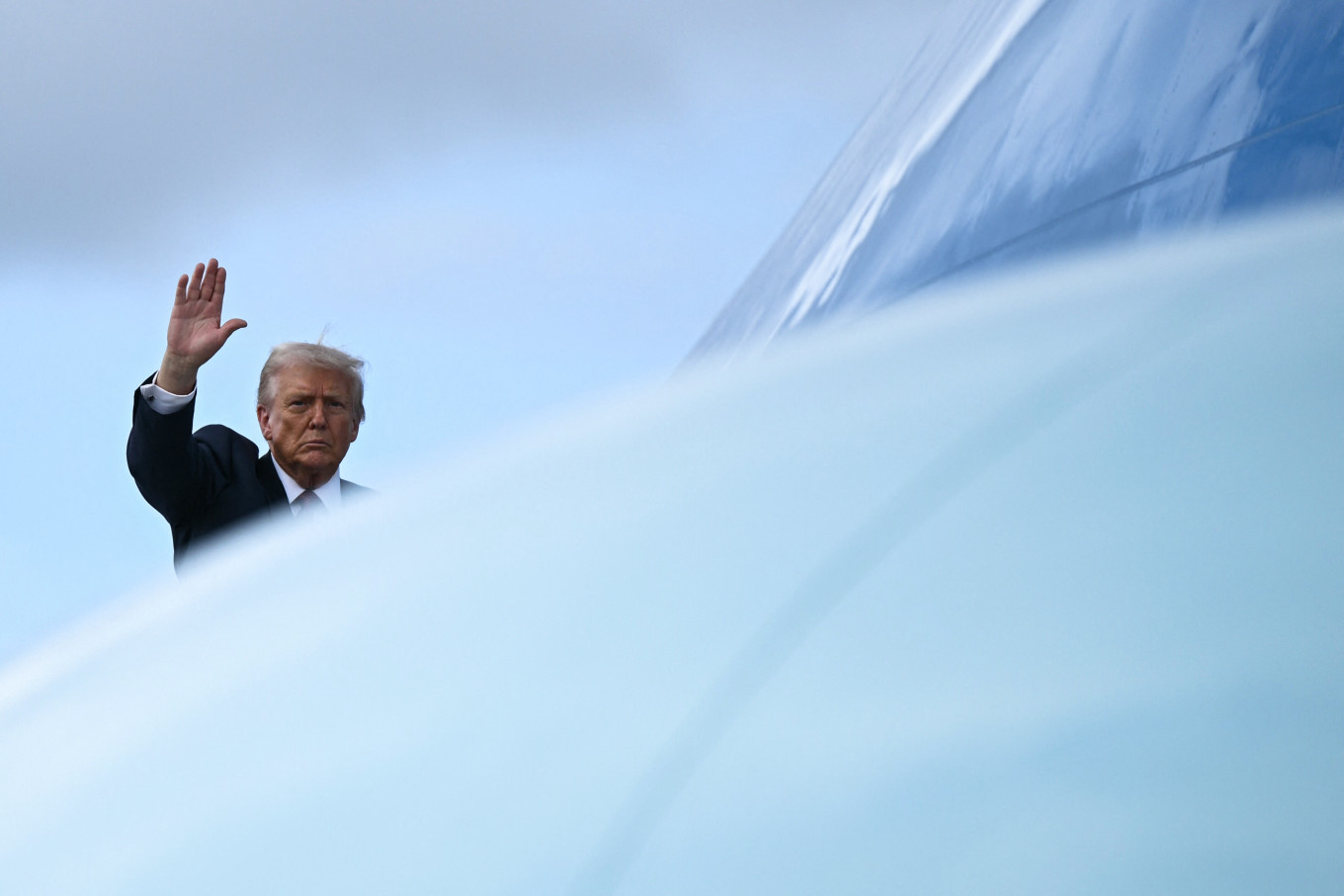Popular Reads
Top Results
Can't find what you're looking for?
View all search resultsPopular Reads
Top Results
Can't find what you're looking for?
View all search resultsAmerica's future is being sacrificed for short-term ‘wins’
The US is trading long-term strategic advantages for immediate tactical gains, and the costs are accumulating in ways that won’t become apparent until it’s too late to reverse course.
Change text size
Gift Premium Articles
to Anyone
T
he United States is winning. Or at least that is how it looks if you are tracking market indices and the parade of countries lining up to cut deals with President Donald Trump. The US economy is outpacing its allies. Stocks keep hitting record highs. And Asian and Gulf countries have pledged trillions of dollars in foreign direct investment in the US during the Trump presidency.
Moreover, the United Kingdom, the European Union and several Southeast Asian countries have offered non-reciprocal trade deals. Canada withdrew its plan to impose a digital services tax. Japan made unilateral concessions on automotive tariffs and Nippon Steel. And European pharmaceutical companies are relocating production to the US to avoid punitive tariffs. While the labor market is softening and consumer confidence is in the doldrums, spending (especially by the wealthiest Americans) continues to chug along. Combined with an AI investment boom and massive deficit spending, enabled by the dollar’s ongoing status as the global reserve currency, markets continue to bet on US liquidity and growth.
But while the short-term picture looks strong, the US is trading long-term strategic advantages for immediate tactical gains, and the costs are accumulating in ways that will not become apparent until it is too late to reverse course.
Start with immigration. For decades, America’s ability to attract the best and brightest from around the world has been the cornerstone of its technological, economic and soft-power dominance. But now, the welcome mat is being rolled up. The Trump administration is increasingly hostile to immigrants (whether legal or illegal, skilled or unskilled), nativist sentiment among Americans is growing and civil liberties (especially for non-white immigrants) are increasingly uncertain. The numbers speak for themselves: International student arrivals to the US have declined by nearly 20 percent relative to last year.
Meanwhile, China is introducing new visas explicitly designed to poach high-skilled workers from the US, and Canada is plastering airports with recruitment pitches. As the US becomes a less attractive destination for top global talent relative to its competitors, the long-term economic damage will compound.
Then there are the universities. The Trump administration has not only targeted humanities departments, which have indeed often become intellectually insular and ideologically doctrinaire, but has also slashed research infrastructure at America’s (and the world’s) finest universities. These institutions keep the US at the cutting edge of science and technology and attract tomorrow’s leading scientists, engineers and entrepreneurs. Undermining that ecosystem will erode a key pillar of the US economy at a time when public trust in science itself is declining. Vaccine skepticism, conspiracy theories and reflexive rejection of expertise are not just cultural quirks. They are structural disadvantages when competing against countries where faith in science and technology remains strong, leaving Americans in no position to drive the next wave of innovation.
Take AI. The US is racing ahead in consumer-facing AI, chatbots, engagement-maximizing social media, tools to produce yet more addictive slop, ever-larger language models that claim to be one step closer to superintelligence, because that is where the money is. But these technologies are also fragmenting society, amplifying misinformation and possibly contributing to a kind of collective psychosis. China, by contrast, has channeled AI development away from consumer applications in favor of defense and industrial uses, which carry less risk of social fragmentation and more strategic upside.



















